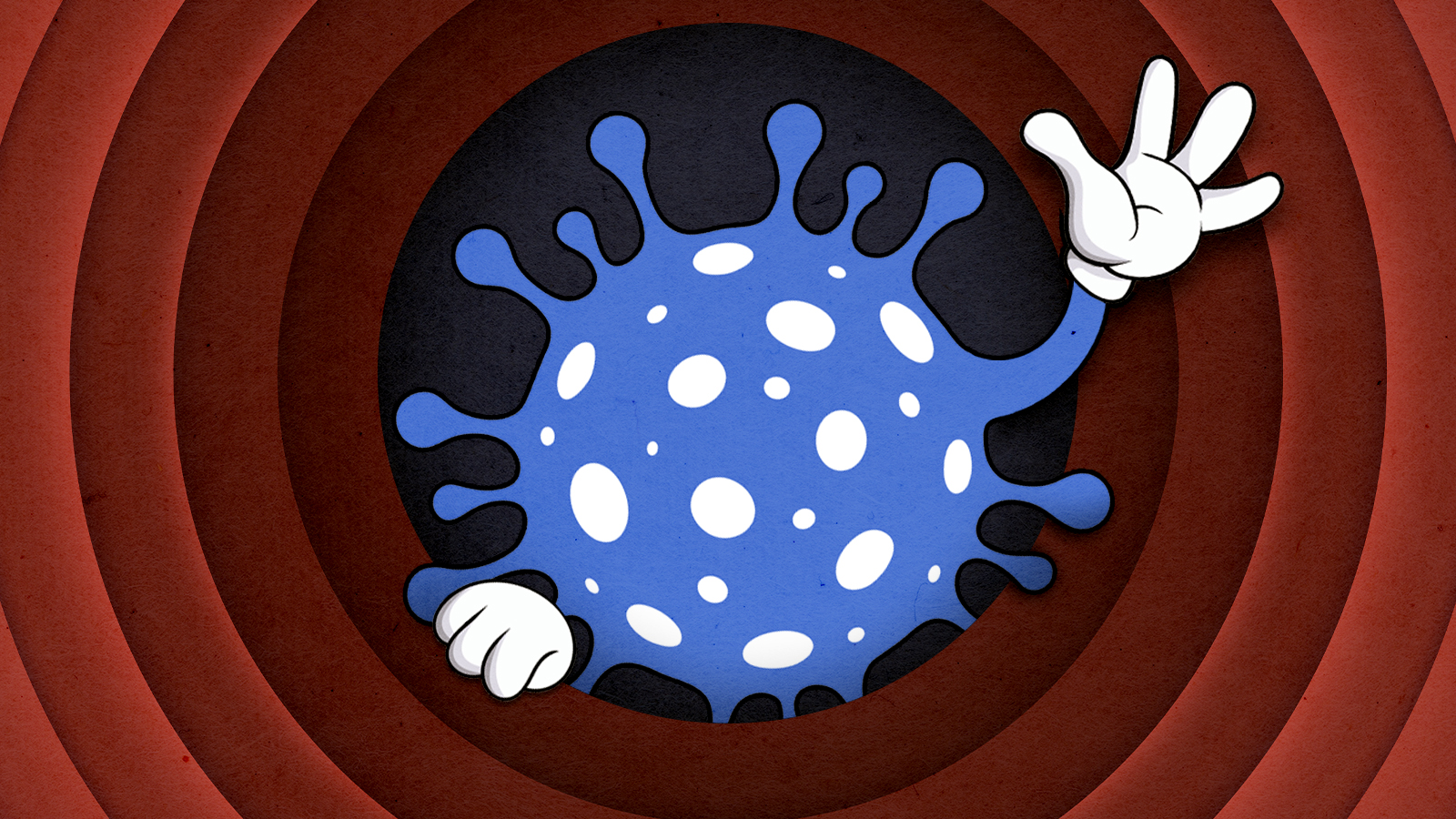Is the pandemic really over?
President Biden says so. Some experts are skeptical.


A free daily email with the biggest news stories of the day – and the best features from TheWeek.com
You are now subscribed
Your newsletter sign-up was successful
President Biden says the COVID-19 pandemic is over.
That's not quite an official medical assessment. But Sunday night on 60 Minutes, the president made it clear that the country is pretty much moving on — culturally, at least — from the havoc that the coronavirus has wreaked on the economy, education, and politics over the last three years. "The pandemic is over," Biden said. "We still have a problem with COVID. We're still doing a lot of work on it. But the pandemic is over." Stocks for vaccine-making companies immediately dropped on Monday morning.
Is Biden right? "The U.S. government still designates COVID-19 a Public Health Emergency and the World Health Organization says it remains a Public Health Emergency of International Concern," CNN notes. On the other hand: Officials report that weekly coronavirus deaths are at their lowest level since March 2020, when the emergency began. On the other other hand: That still means some 400 or more deaths a day.
The Week
Escape your echo chamber. Get the facts behind the news, plus analysis from multiple perspectives.

Sign up for The Week's Free Newsletters
From our morning news briefing to a weekly Good News Newsletter, get the best of The Week delivered directly to your inbox.
From our morning news briefing to a weekly Good News Newsletter, get the best of The Week delivered directly to your inbox.
So, is the pandemic really over? And what does it mean if it is?
The data contradicts Biden
"Public health experts weren't impressed with the president's language," NPR reports, quoting one expert who called Biden's remarks "malarkey." Worldwide, the number of new COVID cases peaked in January and "we've come a long way since then," but it's also the case that "there are still thousands of cases being detected every day," and that doesn't even include all the unreported and undiagnosed cases that officials suspect are out there. What's more, Biden's statement goes against his own administration's actions — the White House has asked Congress to approve $22.4 billion in new funding to fight COVID. Perhaps the most important factor: While the Centers for Disease Control has loosened some of its recommendations to the public, it also "has not publicly declared the end of the pandemic."
It feels over but it's not
"No doubt, the pandemic has receded dramatically from my daily life," Tufts University professor Daniel Drezner writes at his eponymous Substack newsletter. Fewer than 10 percent of students and faculty on his campus are bothering to wear masks these days, after all. But there is plenty of data showing that the COVID virus is persisting. "A quick glance at the Boston wastewater data suggests that the not-so-novel coronavirus is more prevalent now than it was five months ago." And even if COVID deaths are at their lowest point since the pandemic began, the virus is still a major cause of death and illness. So why say the pandemic is over? Because we're tired of it, and because the risks aren't as great as they were before vaccines and antiviral medicines emerged. Bottom line: "Americans are sick and tired of the pandemic and now willing to take greater risks to return to their pre-pandemic lives."
Biden's "emergency" debt order is illegal
The president's 60 Minutes declaration means his recent order canceling billions of dollars in student loan debt is "flatly unconstitutional," Charles C.W. Cooke writes for National Review. Why? Because the "order rested entirely upon there being an ongoing emergency, and because, as Biden has just confirmed, there is no ongoing emergency." The debt order was always on flimsy ground anyway, in part because the president's claim of an emergency was "flatly contradicted" by his long delay in issuing the order — two-and-a-half years after the pandemic began. Now Biden has given us additional proof that his debt order was misguided and wrong. After all, "the powers to which Biden laid claim can be applied only when there is an active emergency, and that the active emergency Biden is citing has now passed."
A free daily email with the biggest news stories of the day – and the best features from TheWeek.com
Premature declarations of victory are dangerous
"We have seen the 'it's over' dismissive nonsense before," Dr. Eric Feigl-Deng, chief of COVID Risk Task Force at the New England Complex Systems Institute, says in a Twitter thread. The CDC dropped its mask mandate in May 2021 — only for the Delta and Omicron variants to spread devastating illness and death across the country afterwards. There is a similar risk at play even now: Almost 94 percent of U.S. counties are still experiencing "substantial" or "high" transmission of COVID. "The more we let it transmit, the more variants and more #LongCovid" the U.S. is likely to experience. Many of us have started to treat the coronavirus like the flu, but "COVID still kills orders of magnitude more." The roughly 3,000 Americans who die from the virus each week are about the same number that died on 9/11. That's a sign the pandemic isn't really over. "A weekly 9/11 is a very big deal."
Joel Mathis is a writer with 30 years of newspaper and online journalism experience. His work also regularly appears in National Geographic and The Kansas City Star. His awards include best online commentary at the Online News Association and (twice) at the City and Regional Magazine Association.
